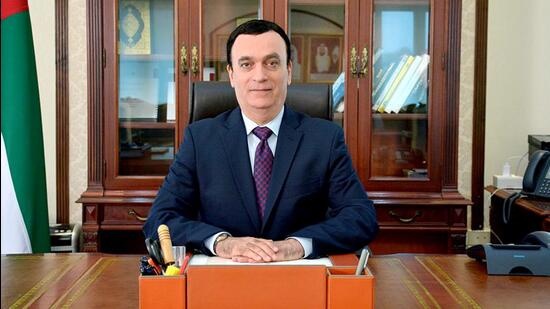India, UAE finalise trade pact, await nod for signing: UAE envoy
The UAE was India’s third largest trade partner for the eighth consecutive year in 2020-21, and bilateral non-oil trade has grown from $185 million in 1985 to more than $43 billion in 2020-21
Negotiators from the United Arab Emirates (UAE) and India finalised the draft for the comprehensive economic partnership agreement (CEPA) and they are waiting for a final signal from respective leaderships to sign the trade pact, UAE ambassador Ahmed AlBanna said on Thursday.

India is negotiating a similar trade agreement with countries such as Australia, the UK and Taiwan. New Delhi and Abu Dhabi had reportedly committed themselves to concluding the negotiations by March this year.
“We started the actual negotiations in October [2021] and by December- end, our team of negotiators, from UAE and India, had finalised the agreement,” AlBanna said while participating in a virtual interaction organised by Ananta Aspen Centre, a non- profit organisation.
“Soon, it (pact) will be signed and implemented...we are just waiting for the final [signal from the] leadership from both sides to conclude the agreement,” he said. The CEPA, he added, will “unleash the golden era in our bilateral partnership”.
AlBanna noted that negotiating a major trade agreement usually takes countries at least a year or two. “We concluded a CEPA agreement with India in less than four months. That shows the immense interest from both sides [in] trying to reach a final agreement which will benefit the economies of both countries,” he said.
The CEPA, he said, will have a positive impact on unemployment, trade, investment, manufacturing and services. “It will create a corridor...for India in the UAE and for the UAE in India,” he added.
AlBanna made a strong case for renegotiating the existing India-UAE air services agreement, especially to facilitate the travel of the 3.4 million Indians who live in the emirates. He noted that “certain restrictions” imposed on air travel are affecting them and are “unacceptable”.
Even the current air bubble arrangement between India and the UAE has opened up capacities “only up to the level of what India carries one way to the UAE”, he said. This, he pointed out, makes no sense to the UAE carriers. With demand being high and the number of seats limited, air fares were high, he said. The air services agreement, AlBanna said, was “suffering” even before Covid-19, and the UAE’s calls to renegotiate the pact had “never received a positive response” from the Indian side.
Albanna said the India-UAE partnership had strengthened during the pandemic. He identified defence, security, cyber-security, food security, healthcare and AI as new strategic sectors for cooperation with India.
The UAE was India’s third largest trade partner for the eighth consecutive year in 2020-21, and bilateral non-oil trade has grown from $185 million in 1985 to more than $43 billion in 2020-21. The UAE’s foreign direct investment into India too jumped from $339 million in 2020 to $4.2 billion in 2021.
The Abraham Accords signed by the UAE and Israel have opened up new opportunities in trilateral strategic cooperation with India. “The newly formed West Asian Quad between the UAE, India, Israel and the US is an offspring of the Abraham Accords and of the trilateral UAE-India-Israel [cooperation],” he said.






